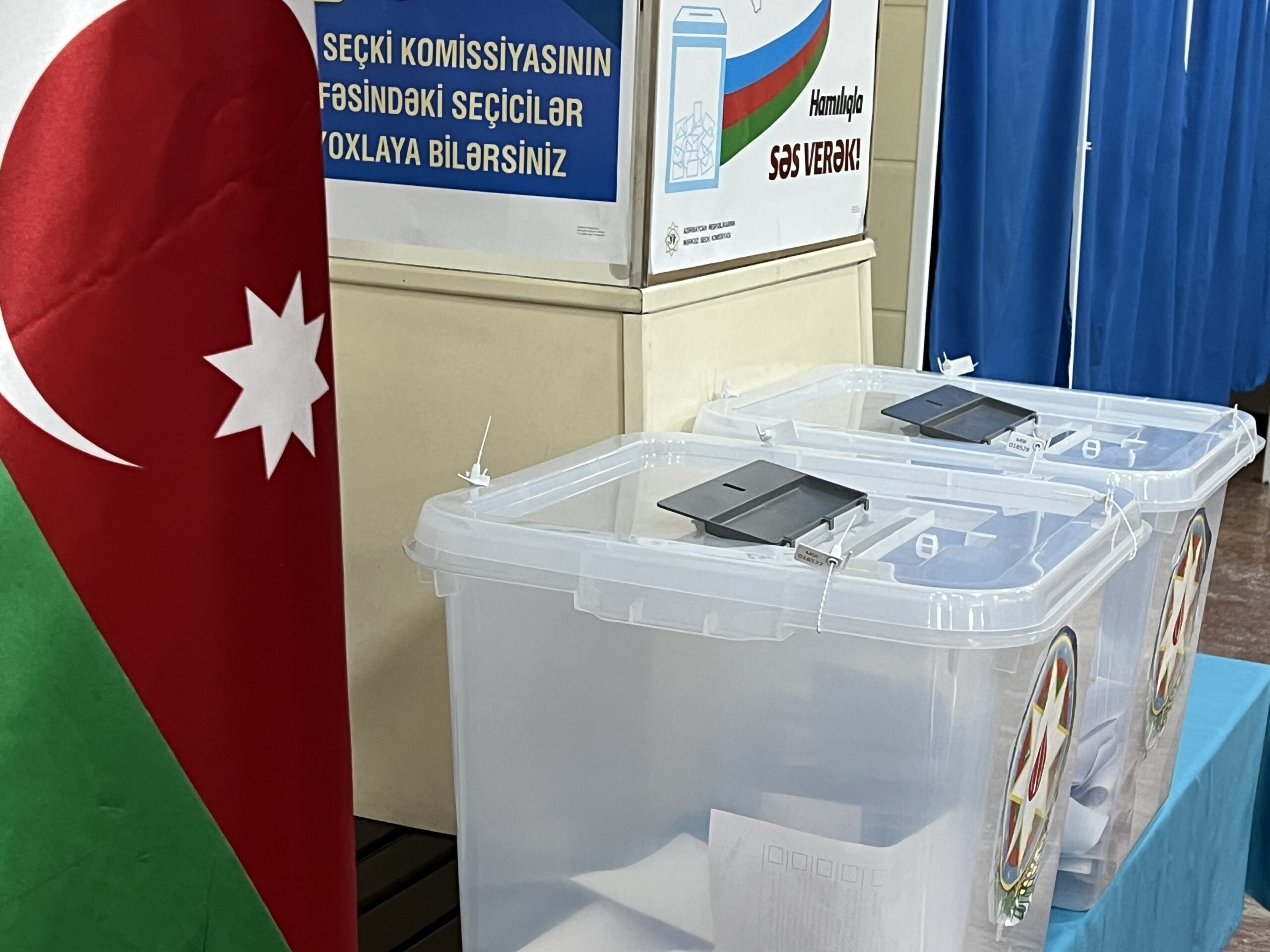
On September 1, 2024, Azerbaijan held snap parliamentary elections under heavily restricted conditions, with fundamental freedoms such as expression, assembly, association, and information severely curtailed.
The Aliyev regime escalated repression, preventing independent media coverage and citizen election monitoring. Anar Mammadli, leader of a prominent election observation NGO and a Václav Havel Human Rights Prize laureate, was once again imprisoned on fabricated charges, alongside 300 other activists, journalists, and members of opposition movements. Approximately 30 civil society activists were forced to leave the country.
As in previous elections, authorities deployed hundreds of fake international observers to create a false sense of legitimacy and conceal widespread electoral manipulation.
Unprecedented Repression of Political Freedoms
Since the March 2024 presidential election, the crackdown on civil society activists and journalists has escalated. Azerbaijani human rights groups report more than 300 politically motivated imprisonments, with human rights defenders, media, and opposition figures facing baseless, serious charges. Notable among them is Anar Mammadli, Vaclav Havel Human Rights Prize laureate and head of EMDS, the country’s largest and only election monitoring organization.
The repressions of the Aliyev regime, which were intensified before the elections, made it essentially impossible for activists to observe the elections freely. Analysis of the elections was possible through open-source information, candidate reports and the involvement of a limited number of observers and voters themselves.
Intransparency and manipulation of electoral data
Official results claim that the ruling New Azerbaijan Party of long-term president Ilham Aliyev won 68 of 125 seats, with a 37.27% voter turnout. However, turnout was reported only at the district level, not by polling station, representing a significant decline in transparency.
Statistical analysis revealed alarming irregularities, including identical vote counts for the ruling party across multiple districts and reports of unnatural 100% voter turnout in some areas, indicating systematic manipulation of electoral data and raising doubts about the official reported turnout, which may have been even lower. This reflects voter apathy towards the election due to the lack of opportunities to elect viable alternatives to the ruling regime, raising concerns about the overall legitimacy of the election results.
Instances of traditional manipulations like ballot stuffing and carousel voting were caught on polling station cameras. These cameras, which were purportedly installed at 1,000 stations to “further increas[e] transparency” faced significant operational issues. Observers noted widespread problems with both access and reliability, reporting frequent system instability throughout the day. By the time the vote count commenced, only a small fraction of the cameras remained operational, severely limiting the ability to conduct any meaningful quantitative analysis of the recorded footage.
Scores of fake observers whitewash fraudulent elections
Azerbaijan relied heavily on the involvement of so-called “fake observers.” Fake observers are individuals acting as “international observers” providing misleading information about the conduct of elections towards both the voters and an international audience to create the illusion of credible international oversight. Of the 598 accredited international observers, only 279, from the ODIHR and OSCE Parliamentary Assembly, met the recognized international standards for election monitoring.
Fake observers praised the elections’ “high standards” despite obvious violations in the pre-election phase and the voting day. The EPDE has identified 107 fake observers in an ongoing investigation, including 18 politicians and officials from the EU and other democratic states, not only aiding the Azerbaijani authorities in manipulating the elections but also undermining the integrity of the democratic institutions they represent. The full report on fake observation during the 2024 parliamentary elections will be published shortly.
EPDE calls on
Subscribe to our
newsletter
Sign up for our monthly newsletter
and receive the latest EPDE news
Subscribe to our
newsletter
Sign up for our monthly newsletter and receive the latest EPDE news